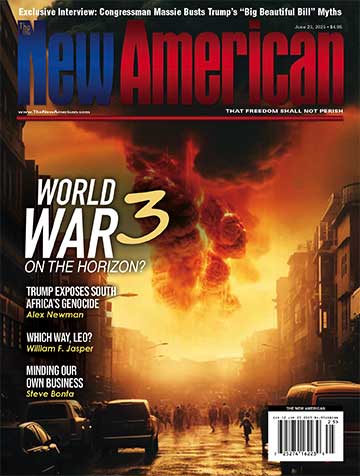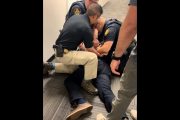
A California first-grader was punished by school principal Jesus Becerra for giving what the principal determined to be a “racist” drawing to another student in the wake of a lesson on Martin Luther King, Jr. and the Black Lives Matter movement. The student — known only as B.B. due to her age — was prohibited from drawing in school and was denied recess for two weeks, and was, allegedly, not given a reason for the punishment.
After the lesson, B.B. apparently felt sympathy for a student of color, known only as M.C., and drew a picture that contained the phrase “Black Lives Mater” [sic], four heads representing different races and the phrase “any life.” Those two words were enough for Becerra to conclude that the innocent drawing, made out of empathy, was in fact racist. B.B. then gave the drawing to M.C., whose mother complained that her daughter was being singled out due to her race.
Becerra then forced B.B to apologize for the drawing, and told the first-grader that her drawing was “inappropriate” and “racist.”
B.B.’ s mother, Chelsea Boyle, was not made aware of the incident for approximately a year. When she became aware of the incident, she pressed Becerra for an explanation and an apology, which was not forthcoming. All of this led to the lawsuit, which U.S. District Judge David Carter dismissed without prejudice on February 22 of this year.
“Giving great weight to the fact that the students involved were in first grade, the Court concludes that the Drawing is not protected by the First Amendment,” Carter wrote in dismissing the case. “B.B. gave the Drawing to M.C., a student of color. The Drawing included a phrase similar to ‘All Lives Matter,’ a sentence with an inclusive denotation but one that is widely perceived as racially insensitive and belittling when directed at people of color.”
So, according to a federal judge, the phrase “All Lives Matter,” which B.B. didn’t actually use, is racist. Even the hint of the phrase is “racially insensitive.”
Carter cited precedent claiming elementary schools are subject to the whims of administrators when it comes to free speech, as opposed to high schools, where free speech holds more weight.
“An elementary school, by contrast, is not a ‘“’marketplace of ideas,’” Carter wrote. “Thus, the downsides of regulating speech there is not as significant as it is in high schools, where students are approaching voting age and controversial speech could spark conducive conversation.”
Plaintiffs, of course, disagreed, and complained that the school’s overreaction to an innocent drawing was representative of a far more worrisome trend.
“The school’s massive overreaction to a young child’s innocent drawing reflects a worrying trend of race obsession in public education that’s contrary to fostering a truly inclusive school environment that values each student as an individual,” wrote the Pacific Legal Foundation, which is representing the plaintiffs.
“To punish a first-grader for giving an innocuous drawing to a classmate that neither disrupted the school nor offended the classmate simply because of an imagined association of the drawing with alleged racist intent shows how deep the ideology of race essentialism has permeated,” Pacific Legal Foundation added. “It didn’t matter that B.B.’s intentions were laudable; the school punished her for saying things that someone else might find offensive.”
“My daughter’s rights were taken away, and I just started reaching out to find out what compelled speech was. I didn’t know what it was until I spoke to attorneys,” Boyle told Fox News.
Boyle’s attorney, Alexander Haberbush, argued, “Every single student in this country has a right to free speech. Now those rights are even stronger when a school tries to compel speech — when a school tries to make you say something as opposed to just telling you that you can’t say something. That’s exactly what has happened here.”
The case is under appeal with the Ninth Circuit. A ruling is expected within a year.





